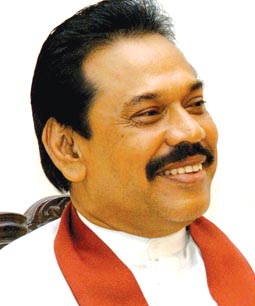Dirty, petty things in ‘mother of all polls’
 Politics could estrange the most intimate bedfellows. The souring of relationship between President Mahinda Rajapaksa, the commander-in-chief of the armed forces, and his former army chief, Sarath Fonseka, has been rapid.
Politics could estrange the most intimate bedfellows. The souring of relationship between President Mahinda Rajapaksa, the commander-in-chief of the armed forces, and his former army chief, Sarath Fonseka, has been rapid.
Falling apart less than six months after the defeat of the Tamil Tigers, they are now headed against each other for the January 26 Presidential polls. “Mother of all polls’’, it is being touted as.
In a matter of days since Fonseka resigned — citing humiliation as a driving reason — the chasm between the two “brothers’’ is getting swiftly filled with allegations of large-scale corruption and brazen nepotism. Murky whisper campaigns circulating personal details are trailing in the air.
Government machinery scrambled in no time. State-run newspapers and websites either blacked out Fonseka — hailed as a hero till very recently — or are printing juicy stories about how corrupt his family was and his China-visit during the last seven days of the war.
Fonseka himself is not doing too badly. On Sunday he said while soldiers were fighting, politicians in Colombo were sitting in “air-conditioned rooms.’’ It has suddenly dawned on him that “one family’’ was trying to take credit for the victory. “Can’t leave the country in the hands of a dictator,’’ he added.
Fonseka has indicated that the murder of and assaults against journalists were done at the behest of powerful men, neatly absolving himself of any responsibility.
Fonseka clearly is trying to project himself as a patriot and a victim of the Rajapaksa brothers’ a paranoia of a powerful army chief, powerful enough to stage a coup.
On his part, Rajapaksa would want to portray Fonseka as a military man high on power and ambition; opportunistic enough to fight a poll on the platform of two diametrically opposite parties, the United National Party, and the Marxist JVP, with totally diverse views on economic issues and the India-initiated 13th amendment (on regional autonomy).
The politics of necessity indeed has the power to bring to bed different ideologies as well.